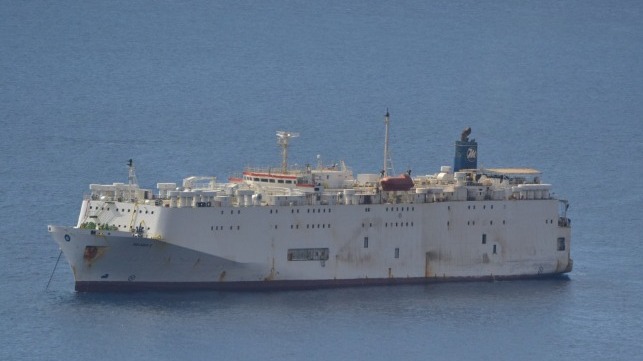NGOs Highlight Maritime Safety Risks of Aging Livestock Carriers

Three European NGOs have released a comprehensive examination of the 78-strong fleet of EU-approved livestock carriers. With an average age of 41 years, these vessels pose an above-average safety risk, according to the Animal Welfare Foundation, Tierschutzbund Zürich and Robin des Bois.
The report’s authors found out that only five of the 78 EU-certified vessels were purpose-built for the transport of live animals. The others all started their commercial lives as container ships, ferries or freighters - and most were at the end of commercial life before their conversion. A handful were already over 40 years old.
“The global average age for scrapping vessels is 30 years. The evaluated vessels, however, already averaged 29 years when they were converted into EU-approved livestock carriers. They already had one ship's life behind them," the groups wrote in their report.
53 of the vessels have been detained multiple times by Paris MoU port state control, and the majority of the fleet is registered with a Paris MoU black list flag, indicating elevated risk. The privatized open registry of Togo, ranked third from the bottom of the black list, is the most popular flag services option for the group. More than two-thirds of the vessels are classed by non-IACS class societies.

that matters most
Get the latest maritime news delivered to your inbox daily.
Given these systemic concerns, the NGOs asserted that the European Commission is not doing enough to regulate livestock carriers that call at EU ports.
"This new study proves once again that live animal export is not a correct practice with regards to animals, humans and the environment. The only solution is to revise [EU transport regulations] to limit as much as possible the unnecessary suffering that live transport implies. With our No Animal Left Behind campaign we’re calling on the Commission to forbid live export to third countries and intra-EU long distance journeys, and to set species- and category- specific requirements for the remaining journeys," said Reineke Hameleers, CEO, Eurogroup for Animals.
